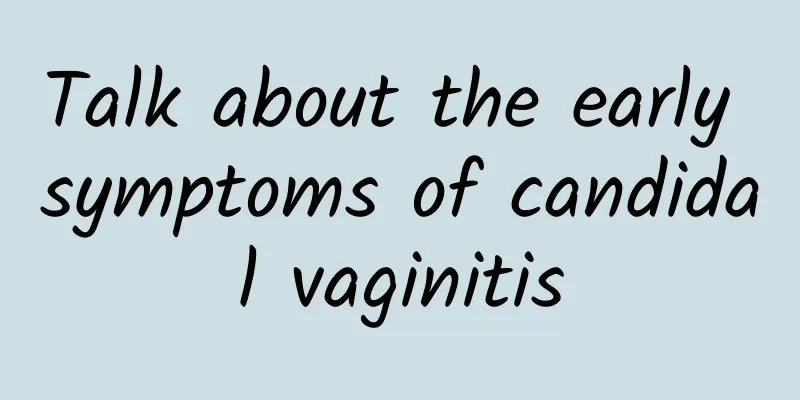Several vegetables that can easily cause miscarriage

|
There is no evidence that certain vegetables can directly cause miscarriage, so there is no such thing as the top ten vegetables that are prone to miscarriage. However, improper handling or eating insufficiently washed vegetables may increase the risk of miscarriage. Pregnant women should maintain a diversified diet and avoid consuming insufficiently washed vegetables, vegetables containing large amounts of nitrates, vegetables that are prone to allergies, vegetables containing oxalic acid, vegetables with high pesticide residues, etc., to avoid adverse reactions. If you feel unwell, it is recommended to seek medical attention in a timely manner. The details are as follows: 1. Inadequately washed vegetables: Inadequately washed vegetables may carry bacteria or parasites, such as Listeria, Toxoplasma, etc. Pregnant women are prone to infection after eating them, thereby increasing the risk of miscarriage. Cause: Pathogen infection. Symptoms: Fever, diarrhea, headache, etc. Treatment: Use antibiotics, such as cephalosporins. Patients must follow the doctor's instructions to use the drugs. 2. Vegetables containing a lot of nitrates: Green leafy vegetables such as spinach and celery contain high levels of nitrates, which may be converted into nitrosamines in the human body and have certain toxicity. Cause: Nitrates are converted into nitrosamines. Symptoms: Nausea, vomiting, dizziness, etc. Treatment: Avoid consuming large amounts of such vegetables and maintain a diversified diet. 3. Vegetables that are prone to allergies: Some people are allergic to certain vegetables such as peanuts and soybeans. If pregnant women ingest allergens, it may cause allergic reactions, which may affect the fetus in severe cases. Cause: Food allergy. Symptoms: Rash, difficulty breathing, anaphylactic shock, etc. Treatment: Antihistamines, such as loratadine tablets. Patients must use the drugs according to the doctor's instructions. 4. Vegetables containing oxalic acid: such as spinach, beets, etc. Oxalic acid combines with calcium to form calcium oxalate, which may cause calcium deficiency in pregnant women. Cause: Formation of calcium oxalate. Symptoms: osteoporosis, muscle cramps, etc. Treatment: Calcium supplements, such as calcium carbonate tablets. Patients must follow the doctor's instructions to use the medicine. 5. Vegetables with high pesticide residues: For example, fruits and vegetables, if the pesticide residue is high, it may have adverse effects on the health of pregnant women and fetuses. Cause: Pesticide residues. Symptoms: Headache, nausea, vomiting, etc. Treatment: Wash vegetables strictly and avoid eating vegetables of unknown origin. Pregnant women should pay attention to choosing fresh and cleaned vegetables in their diet, avoid consuming foods that may contain harmful substances, and protect their own health and that of the fetus. |
<<: 12 kinds of fruits you must eat after miscarriage
>>: Can I get pregnant after endometrial polyp surgery?
Recommend
Don't worry! Women have no hope of losing weight after 50
"Losing weight is a lifelong thing!" Th...
What are the methods to cure pelvic inflammatory disease?
What are the methods to cure pelvic inflammatory ...
Women should pay attention to the various hazards caused by adnexitis
There are many women with gynecological diseases ...
Introduction to the common causes and hazards of ectopic pregnancy
Ectopic pregnancy is different from normal pregna...
Can bacterial vaginosis be completely cured?
Among the various types of vaginitis, everyone mu...
What are the factors for recurrence of pelvic peritonitis?
Pelvic peritonitis refers to inflammation of the ...
What medicine should I take for endometritis and irregular menstruation?
For menstrual irregularities caused by endometrit...
What is the hcg value? What is an ectopic pregnancy?
What is the hcg value and what is an ectopic preg...
Abnormal dysmenorrhea, a signal light for gynecological diseases
Dysmenorrhea is a common gynecological disease. G...
What are the causes of pelvic peritonitis
What causes pelvic peritonitis? Why are women ver...
"Light" tonic in winter! Wolfberry and crucian carp soup nourishes the body and brain
The cold winter is coming, which means it’s time ...
What are the reactions of the abdomen to uterine fibroids? What are the changes in the abdomen to uterine fibroids?
Uterine fibroids are a common gynecological disea...
Causes of pelvic inflammatory disease
Causes of pelvic inflammatory disease 1. Not payi...
Early treatment of ovarian cysts
Early treatment of ovarian cysts: Although the in...
Can stinky tofu contain vitamin B12 to prevent dementia? The devil hides here...
While strolling around the night market, you may ...









